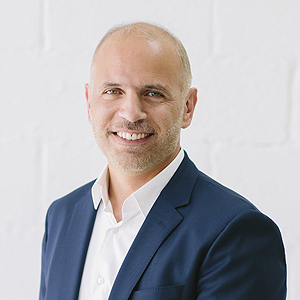
KUWAIT: Many of today's most pressing business problems require creative thinking to solve them, and creativity is an essential ingredient for business growth. Creativity and Innovation in the MENA poll conducted by Bayt.com, the region's number one job site, shows that nine in 10 jobs nowadays require creativity and innovation.
Creative thinking is repeatedly seen as a critical skill across many industries and job roles. From an employer perspective, The Bayt.com Middle East Skills Report also showed that "creative thinking" was among the most important skills for the future of jobs, as stated by 71 percent of employers for junior roles and 77 percent of employers for senior roles.
Creativity is the human aptitude to generate ideas, solve difficult problems and exploit new opportunities - which, in turn, fuels innovation. 85 percent of poll takers described their workplace culture as creative and 91 percent said that their direct supervisor values creativity and innovation on the job.
More than ever, supporting creativity at work is an essential part of driving value for both businesses and society. MENA professionals identified four key personality traits correlating the most with creativity at work: hunger for learning and growth (73 percent), leadership and self-motivation (14 percent), risk taking and exploration (7 percent) and social activity and communication (5 percent). On a promising note, nearly two in three respondents (64 percent) agree that creativity is not an inherent skill; it can be acquired and learned. This means professionals can build up their "creative thinking" with time.
"There is a high value placed on innovation and creativity in the MENA region as demonstrated by our latest poll," said Omar Tahboub, General Manager at Bayt.com. "When creativity is enabled and encouraged at every level of an organization, employees are able to harness this to create more efficient solutions, to innovate and to collaborate. Our data shows that innovation and creativity are highly demanded and desired on both sides of the job market; job seekers and employers alike. At Bayt.com, we ensure that we provide abundant choice of talent with a database of 35.6 million CVs. Likewise, we offer various learning and career development tools for our job seekers to ensure they are maximizing their creative thinking and other skills needed for employment."
Not only can individual behavior influence creative thinking, employers have a huge role in cultivating creativity and innovation. In fact, most MENA professionals say (74 percent) that they feel more creative outside of work and 87 percent say that repetitive routine lowers their creativity at work.
According to poll respondents, there are five important barriers to organizational creativity: lack of access to information (57 percent), resistance to change (18 percent), bureaucracy (10 percent), risk aversion (6 percent) and lack of resources like time, money, etc. (6 percent).
MENA professionals highlight five significant factors that enhance organizational creativity and innovation: leadership (55 percent), open communication (21 percent), appropriate tools and technology (11 percent), diversity (9 percent), and opportunities to lead one's own projects (3 percent).
The survey provided some important clues on how to develop a work environment that supports the efforts of innovative and creative people. 72 percent of respondents think "conducting more brainstorming and group work sessions" helps increase motivation.
One aspect of enabling people to produce their most innovative work is by understanding how the physical space they are in affects their creativity. A whopping 92 percent of survey respondents say that office design and layout impact creativity and innovation at the workplace. A well-designed space connects employees to the company's brand and helps them innovate to deliver better services.
Data for the Bayt.com Innovation and Creativity in the MENA 2018 was collected online from February 27 to April 3, 2019. Results are based on a sample of 7,580 respondents. Countries assessed include UAE, Saudi Arabia, Kuwait, Oman, Qatar, Bahrain, Lebanon, Jordan, Iraq, Palestine, Syria, Egypt, Morocco, Algeria, Tunisia, Libya and Sudan.




